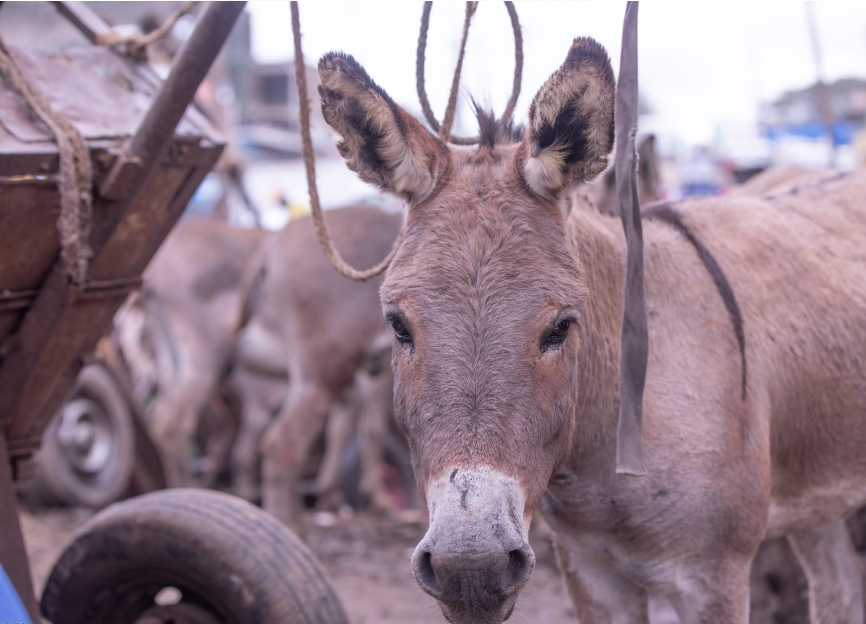Broke East Africa is advocating for the well-being of donkeys and horses in response to alarming cases of illicit trade, particularly the slaughter of donkeys in the bushes.
The government has launched a crackdown on the illicit sale of donkey meat and skin following reports of increased slaughtering in the bushes and the transportation of meat to major towns.
Despite the government’s ban on donkey slaughter in 2020 and the closure of designated abattoirs, concerns persist regarding the origin of donkey meat and the risks associated with its consumption.
Speaking in Nairobi, Dr. Raphael Kinoti, the Regional Director of Broke East Africa, highlighted the dangers of consuming donkey meat. “Donkey meat is dangerous to human beings because it carries 16 contagious diseases,” Dr. Kinoti emphasized, citing examples such as anthrax and rabies. He also mentioned recent incidents of donkey meat being transported to Nairobi by lorry.

The latest data reveals a significant decline in the donkey population, from 1.8 million in 2016 to 1.3 million in 2023, with concerns raised about the high rate of slaughter in 2016.
The demand for donkey trade surged in 2015 due to China’s requirement for donkey skin in traditional medicine, cosmetics, and herbal drugs, including a product believed to boost libido.
To address the issue, the government has deployed multi-agency teams to identify hotspots for illegal slaughter and dismantle criminal syndicates involved in the trade. Counties such as Kajiado, Turkana, Narok, Marsabit, Kiambu, and parts of Ukambani have been identified as leading hubs for illicit donkey trade.
Dr. Kinoti expressed concern about the mistreatment and abandonment of donkeys, urging farmers to take better care of their animals and support government initiatives like the 100-day Rapid Response Initiative launched to combat the menace.
Broke East Africa also focuses on the well-being of horses in East Africa, where Kenya has a significantly lower horse population compared to other countries.
Dr. Kinoti stressed the importance of protecting both horses and donkeys, emphasizing the need for increased awareness and care for these animals, which are primarily used for recreation in Kenya.







More Stories
Kingdom Bank Powers Latema Travels’ Expansion with 50-Bus Financing Deal
Infotrak Survey Ranks Kenya’s Top MPs, Salasya Disputes Position
Aden Duale: Every Kenyan Has a Right to Identification Documents